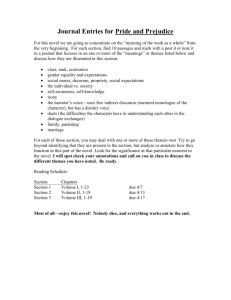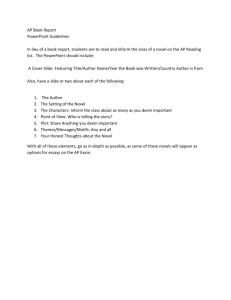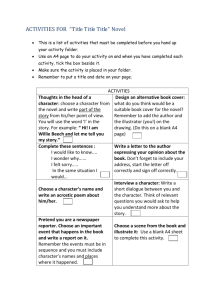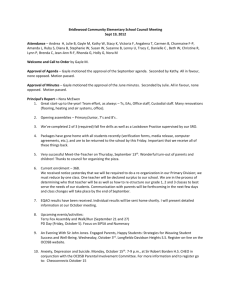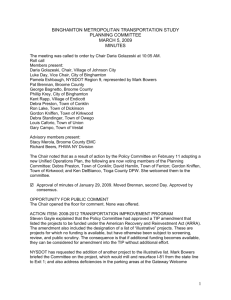Nightingale's Nest
advertisement
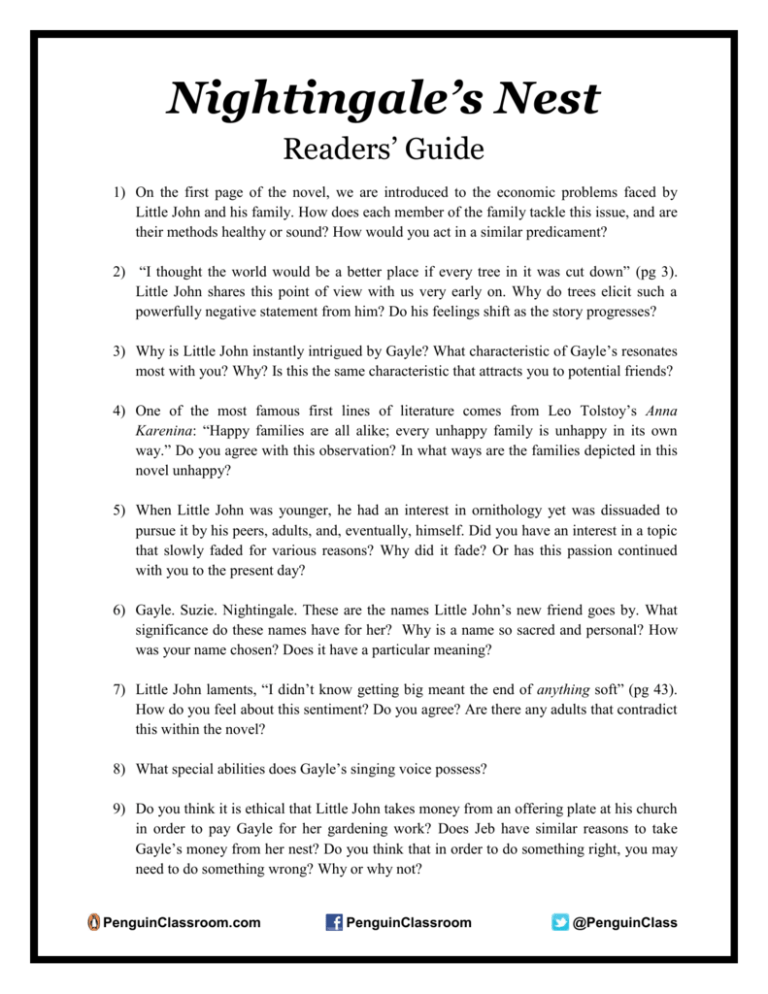
Nightingale’s Nest Readers’ Guide 1) On the first page of the novel, we are introduced to the economic problems faced by Little John and his family. How does each member of the family tackle this issue, and are their methods healthy or sound? How would you act in a similar predicament? 2) “I thought the world would be a better place if every tree in it was cut down” (pg 3). Little John shares this point of view with us very early on. Why do trees elicit such a powerfully negative statement from him? Do his feelings shift as the story progresses? 3) Why is Little John instantly intrigued by Gayle? What characteristic of Gayle’s resonates most with you? Why? Is this the same characteristic that attracts you to potential friends? 4) One of the most famous first lines of literature comes from Leo Tolstoy’s Anna Karenina: “Happy families are all alike; every unhappy family is unhappy in its own way.” Do you agree with this observation? In what ways are the families depicted in this novel unhappy? 5) When Little John was younger, he had an interest in ornithology yet was dissuaded to pursue it by his peers, adults, and, eventually, himself. Did you have an interest in a topic that slowly faded for various reasons? Why did it fade? Or has this passion continued with you to the present day? 6) Gayle. Suzie. Nightingale. These are the names Little John’s new friend goes by. What significance do these names have for her? Why is a name so sacred and personal? How was your name chosen? Does it have a particular meaning? 7) Little John laments, “I didn’t know getting big meant the end of anything soft” (pg 43). How do you feel about this sentiment? Do you agree? Are there any adults that contradict this within the novel? 8) What special abilities does Gayle’s singing voice possess? 9) Do you think it is ethical that Little John takes money from an offering plate at his church in order to pay Gayle for her gardening work? Does Jeb have similar reasons to take Gayle’s money from her nest? Do you think that in order to do something right, you may need to do something wrong? Why or why not? PenguinClassroom.com PenguinClassroom @PenguinClass 10) How would you describe the relationship between Little John and his father? Little John and his mother? In what ways are they different/similar? Do these relationships evolve throughout the novel? In what ways? 11) Why is Little John so estranged from Ernest and Isabelle? Is this relationship mended by the end of the novel? Was it fair of Little John to push his friends away during such a difficult time in their lives? 12) Little John makes various promises to Gayle – some of which he does not keep. Why are these pledges so important and what happens as a result of breaking them? Is it sound to make promises that you know you may not be able to keep? 13) To what lengths does Little John go to put things in their rightful place? Do you think his mother is correct in wondering, “Why can’t you do what’s right?” (pg 125)? Is his family’s unhappiness solely his fault? 14) Little John switches between two names for his father’s boss – Mr. King and The Emperor. Does one name provoke a different reaction than the other for you? Which names suits the character better? 15) How would you describe the mental state of Little John’s mother? Is there anything Little John can do help his mother, or is it like Gayle states – it is not his job to save everything (pg 138)? 16) When Little John plays Bible fortuneteller, it lands on: “I found he had done nothing deserving of death, but because he made his appeal to the Emperor…” (pg 164). Do you believe Little John interprets his “fortune” correctly? Is this the best way to make decisions? 17) Little John contemplates numerous times what it means to be a man. In what ways does the novel address this question? Is there one correct answer? 18) How would you describe Mr. King? Does he have any positive qualities? What moments in the novel might make you reconsider the idea that he is simply evil? 19) Which characters experience redemption by the end of the novel? In what ways? Which characters experience a different kind of fate? Are you satisfied with these outcomes? 20) Did Gayle’s fate in the book surprise you? What clues throughout justify this conclusion? PenguinClassroom.com PenguinClassroom @PenguinClass 21) Throughout the novel Little John and Gayle refer to sounds, people, and other events as types of birds. If you were described as a bird, what kind of bird do you imagine you would be? Why? For reference, start with The Online Guide to North American Birds from The National Audubon Society. 22) This novel is a modern retelling of Hans Christian Andersen’s The Nightingale. In what ways are both of these stories similar/different? Do they address different issues? Which version resonates with you most? How so? 23) Do you think there is merit in retelling classic fairy tales/literature in a modern setting? What advantages does this present to the writer and to the reader? Can you think of other examples of modern retellings? Questions by Lourdes Keochgerien, Editor-at-Large for YARN – The Young Adult Review Network PenguinClassroom.com PenguinClassroom @PenguinClass





